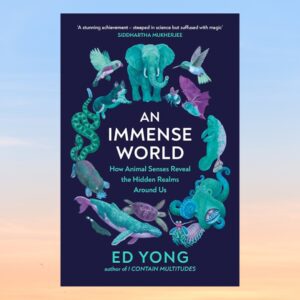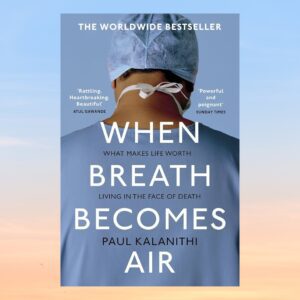This summer, building on our list from last year, we’re offering reading recommendations for people to enjoy wherever and whenever they travel. This is the fourth in a series of posts to come from our in-house staff and editors. Enjoy.
One of the threads that runs through the work of the John Templeton Foundation is the belief that reality is deeper and richer than what we see on the surface. Whether we’re trying to understand forgiveness or epigenetics, asking deep questions—with the humility to recognize that we have something to learn—allows us to make progress.
This same idea features in a few of the best books I’ve read recently. While they are from different genres and diverse perspectives, each points to an invisible reality hiding just beyond what we can see. In the books below, a science journalist, a fantasy novelist, and a dying neurosurgeon show us that when we adopt a spirit of open-mindedness and ask new questions, we find that the world has more to reveal to us than we assumed it could.
An Immense World (2023)
By Ed Yong
Philosopher Thomas Nagel famously asked, “What is it like to be a bat?” In this book, Ed Yong takes a deep dive into the science behind that question and similar questions about the internal world of elephants, sharks, birds and other creatures. He explores senses and experiences no human has ever had and leaves you with the distinct impression that the world is so much bigger, and stranger, than we think it is.
 Piranesi (2020)
Piranesi (2020)
By Susanna Clarke
In this fantastical murder mystery, the entire world is shrunk to the halls of a labyrinthine house. The earnest and naïve narrator endeavors to document and understand his house with a mix of scientific and religious zeal that brings to mind early natural philosophers. But his pursuit of answers leads him to discover that his current life is a sham, and the world is so much bigger than he was led to believe.
 When Breath Becomes Air (2016)
When Breath Becomes Air (2016)
By Paul Kalanithi
A memoir of a neurosurgeon diagnosed with terminal cancer. Faced with his own mortality, new questions about personal meaning and purpose become salient to him. Reading the book is heartbreaking, but gifts you with one of those rare moments when you are jarred out of your daily routine and invited to engage with the too-often invisible things that matter most in every life.



